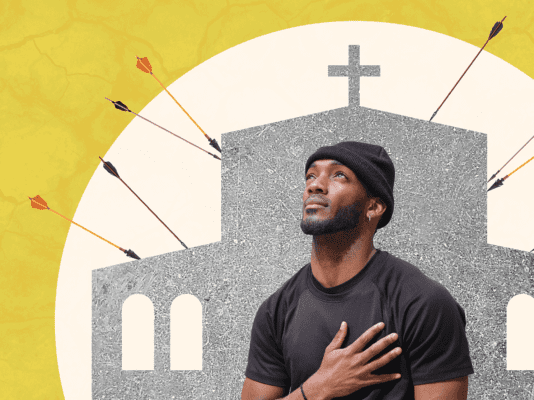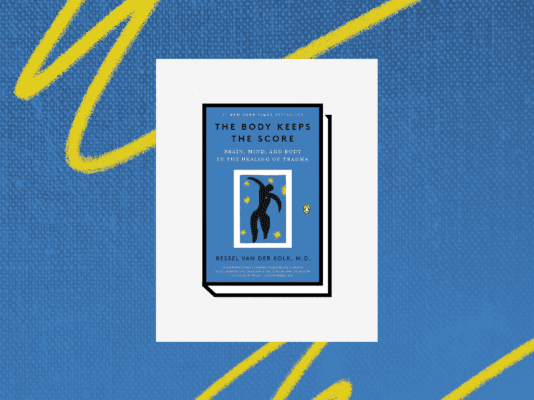Mental illness has become a ubiquitous experience for people in the modern Western world. Though defining what we mean by “mental illness” is met with disagreements and controversies in the Christian community, the term is used in this article consistent with the way most people in our context understand it—namely, to refer to common psychological struggles such as depression, anxiety, obsessive-compulsive disorder (OCD), bipolar disorder, and post-traumatic stress disorder (PTSD), among others.1For a good treatment on the term mental illness and how Christians should approach the use of the term see, David Murray, A Christian’s Guide to Mental Illness: Answer to 30 Common Questions, (Wheaton, IL, Crossway, 2023), 7-37.
A study done in 2021 stated that, among 18- to 25-year-olds, 1 in 3 had experienced mental illness in the previous year, while 1 in 10 experienced serious mental illness in the last year.2These statistics are from the NIMH website and define serious mental illness (SMI) “as a mental, behavioral, or emotional disorder resulting in serious functional impairment, which substantially interferes with or limits one or more major life activities. The burden of mental illnesses is particularly concentrated among those who experience disability due to SMI.” “Mental Illness,” National Institute of Mental Health, September 2024, https://www.nimh.nih.gov/health/statistics/mental-illness This means that, in our families, churches, neighborhoods, and places of work, there are people who will struggle, have struggled, or are currently struggling with some sort of mental illness.
Loving people who struggle with mental illness is difficult. While our hearts break to see our loved ones wrestle with an affliction they would not have chosen for themselves, our families also bear the weight of such complex suffering, especially when it persists.
If you are or know someone caring for a loved one with mental health struggles, I want to offer encouragement. This article will provide advice on how to help, love, and care for those experiencing this type of suffering.
Embrace Complexity
No one wants their persistent struggles with mental illness to be taken lightly. One of the things I find to be the most common source of pain for people who struggle in this way is the overly simplistic statements made by loved ones such as,
“If I were you . . .”
“At least you still have . . .”
“Just [pray, read your Bible, keep praising the Lord, etc.]
“What is God trying to teach you?”3Ed Welch, “When We Hurt Those Who Are Hurting,” Christian Counseling & Education Foundation, December 21, 2023, https://www.ccef.org/when-we-hurt-those-who-are-hurting
Ed Welch, a counselor, explains that when we make statements like these, “we isolate those who already feel alone.”4Ibid. Instead, we should realize that persistent struggles with mental illness are anything but simple, and it is in embracing that messy complexity that one can bring hope to the suffering person.
We should realize that persistent struggles with mental illness are anything but simple, and it is in embracing that messy complexity that one can bring hope to the suffering person.
Many people who struggle with various forms of mental illness are already self-deprecating and continually assessing their struggle in spiritual terms. They see themselves as unlovable, ungodly, and wrestle to see any hope in all the pain and difficulty. No one needs those thoughts confirmed by short and glib statements that imply what they already have begun to fear about themselves.
Instead of proving ourselves to be miserable comforters like Job’s friends (Job 16:2), these individuals need someone to sit with them and help them untangle the difficult web of pain while pointing them to God for help in their suffering. They need someone to encourage them to go see a doctor, a Christian counselor, their pastor, and/or other forms of help that we have been given by God’s grace.
At the counseling center where I work (Fieldstone Counseling) we constantly quote Addison Leitch’s adaptation of a famous Oliver Wendell Holmes quote. He says that simplicity “On the near side of complexity is simplistic. On the far side of complexity is simple.”5Steve Midgely, “Simple is not the same as simplistic,” Biblical Counselling UK, October 11, 2023, https://bcuk.org/resource/simple-is-not-the-same-as-simplistic/ This means that complexity is the experience of the person in front of you. If you act as if it is not complex and offer simplicity to them without understanding their complexity, it dishonors their story, their suffering, and will ultimately hurt more than it helps.
Instead, embrace their complexity. Understand it. Then, from a place of understanding, we can help them move toward the simple truth of the gospel.
Our Only Hope in Life and Death
There is only one simple truth that the Christian can offer people whose mental health struggles have persisted, and the Heidelberg Catechism’s first question speaks to it clearly: “What is our only hope in life and death? That I am not my own but belong to my Lord and Savior Jesus Christ.” As Christians, whether we are suffering from disappointments of life, the loss of loved ones, or persisting illness, Christ is our only hope. The hope that Christ brings is both for now and the future, which is why the catechism says he is our hope in “life and death.”
If you scan the pages of Scripture, the hope that is most regularly pointed to is the hope of what the resurrection of Christ means to believers and the life to come. Listen to the turn that Paul makes in the first letter to the Thessalonians in 4:13-18,
We do not want you to be uninformed, brothers and sisters, concerning those who are asleep, so that you will not grieve like the rest, who have no hope. For if we believe that Jesus died and rose again, in the same way, through Jesus, God will bring with him those who have fallen asleep. For we say this to you by a word from the Lord: We who are still alive at the Lord’s coming will certainly not precede those who have fallen asleep. For the Lord himself will descend from heaven with a shout, with the archangel’s voice, and with the trumpet of God, and the dead in Christ will rise first. Then we who are still alive, who are left, will be caught up together with them in the clouds to meet the Lord in the air, and so we will always be with the Lord. Therefore encourage one another with these words.
What does Paul write to a people who have struggled with the loss of loved ones? He tells them to remember the Lord’s resurrection. It brings hope that reframes their experience of grief from something that feels endless to something that is more like saying to a friend, “Until we meet again.” Paul does not minimize the grief or say, “Don’t grieve.” He says, “Look at Jesus and grieve in a way that makes sense of the power of the resurrection.”
The people around us who are struggling the most need to be reminded about how this all plays out in the end. When we remind them of the hope we have in Christ despite suffering and death, it bleeds back into their everyday lives.
Oh, and by the way: you need this hope as well. Do not dispense hope that you do not have. It will be tempting for you to get so caught up in caring for your loved ones that you forget that Christ’s resurrection is for you and your situation, too. Cling to Christ, and point them to Christ. This is our task as Christian caretakers.
Stay
The hardest and most important thing that you can do for a person who is struggling with mental illness over a long stretch of time is to stay. They will not always do the things that are best for them or that you think they should do. They may say things that are troubling, ask questions that you do not understand, or express frustration in ways you think is not helpful.
Stay anyway. The ministry of being present and loving those around you cannot be overstated. We were meant to do this together, and no matter how hard it is to stay, we should continue to show up for those who are struggling with mental illness. It is much harder for a person to convince themselves that they are unloved when people tangibly show them the love of Christ. It is more difficult for them to do things destructive to themselves and others when people are pouring into them consistently, encouraging them toward hope in Christ.
So, stay. Embrace complexity. And point to Christ as our hope. In this way, you can love and encourage those who need to be encouraged and loved the most.
This article is from the Winter 2024 issue of Light magazine, Finding Rest in the Wilderness: Hope and Help for Mental Health Struggles.










